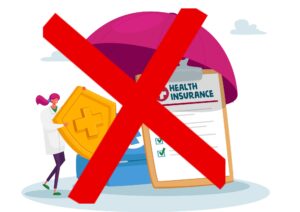Some of the links in this article may be affiliate links, which can provide compensation to us at no cost to you if you decide to purchase a recommended product or service. As an Amazon Associate I earn from qualifying purchases. I only recommend products I have personally used or experienced. Learn more on my privacy policy page.
Top 5 Personal Finance Mistakes To Avoid
Personal finance is an essential aspect of one’s life, and making sound financial decisions can have a significant impact on an individual’s financial well-being. However, many people struggle to manage their finances effectively, and as a result, they make costly mistakes that can affect their financial stability in the long run. In this regard, we identified the most common personal finance mistakes and will teach you the appropriate measures to avoid them.
In this article, we will discuss the top five personal finance mistakes that everyone should avoid. We will explore the reasons behind these mistakes, the consequences of making them, and the strategies that individuals can use to overcome them. By understanding these mistakes and taking proactive steps to avoid them, individuals can improve their financial health and achieve their financial goals.
HERE ARE THE TOP 5 PERSONAL FINANCE MISTAKES EVERYONE SHOULD AVOID
-
OVERSPENDING
-
NOT BUDGETING
-
FAILING TO SAVE FOR EMERGENCIES
-
NEGLECTING RETIREMENT SAVINGS
-
NOT BEING ADEQUATELY INSURED
1. Overspending
Overspending is one of the most significant personal finance mistakes. It can lead to high credit card debt, missed bill payments, and eventually, financial distress. Overspending can happen for various reasons, such as poor budgeting, lack of discipline, or falling into the trap of consumerism.
One of the most effective ways to avoid overspending is to create a budget and stick to it. A budget is a financial plan that helps you track your income and expenses. With a budget, you can identify areas where you can save money and avoid spending more than you earn.
When creating a budget, start by listing your income sources and fixed expenses, such as rent or mortgage payments, car payments, and insurance premiums. Then, include variable expenses, such as groceries, entertainment, and shopping. Set realistic limits on your variable expenses and prioritize your needs over wants.
Another effective way to avoid overspending is to avoid impulse purchases. Impulse purchases are unplanned purchases that you make on a whim. They can be a significant drain on your finances, and you may end up regretting them later. To avoid impulse purchases, wait at least 24 hours before making a purchase. This gives you time to think about whether you really need the item or not.

2. Not Budgeting
Not having a budget is another personal finance mistake that everyone should avoid. Without a budget, you have no way to track your income and expenses, and you may end up overspending or not saving enough.
Creating a budget is not difficult, and it doesn’t have to be time-consuming. Start by listing all your income sources and fixed expenses. Then, include your variable expenses and prioritize your needs over wants. Set realistic limits on your variable expenses, and make sure to include savings as part of your budget.
There are various tools and apps available to help you create a budget. Many banks offer budgeting tools that allow you to track your spending and set savings goals. You can also use budgeting apps such as Mint or YNAB to help you stay on top of your finances.

3. Failing to Save for Emergencies
Emergencies can occur at any time, and not having savings can be devastating. Without an emergency fund, you may have to rely on credit cards or loans to cover unexpected expenses, which can lead to debt and financial stress.
To avoid this, it is essential to have an emergency fund that can cover at least three to six months’ worth of expenses. An emergency fund is a savings account that you set aside for unexpected expenses, such as car repairs, medical bills, or job loss.
To build an emergency fund, start by setting a savings goal. Determine how much you need to cover three to six months’ worth of expenses and set a monthly savings goal. Then, automate your savings by setting up automatic transfers from your checking account to your emergency fund.

4. Neglecting Retirement Savings
Retirement planning should be a priority for everyone. Neglecting retirement savings can result in working longer than expected or not having enough money to retire comfortably. Retirement savings are critical for building wealth and achieving financial independence.
To avoid neglecting retirement savings, start saving as early as possible. The earlier you start saving, the more time your money has to grow, thanks to the power of compound interest. If you start saving in your 20s, you can save less money overall and still end up with a more significant retirement fund than if you start saving in your 40s or 50s.
One of the most effective ways to save for retirement is through an employer-sponsored retirement plan, such as a 401(k) or 403(b). These plans allow you to contribute a portion of your pre-tax income to a retirement account, and many employers offer matching contributions, which are free money towards your retirement savings.
If you don’t have access to an employer-sponsored retirement plan, you can still save for retirement through an individual retirement account (IRA). There are two main types of IRAs: traditional and Roth. Traditional IRAs allow you to contribute pre-tax dollars, while Roth IRAs allow you to contribute after-tax dollars. Both types of IRAs offer tax advantages, and it’s essential to understand the differences and which one may be best for your situation.

5. Not Being Adequately Insured
Not having adequate insurance coverage can be a costly personal finance mistake. Insurance is essential for protecting yourself and your assets from unexpected events, such as accidents, illnesses, or natural disasters. Without insurance, you may have to pay for damages or expenses out of pocket, which can be financially devastating.
The most important types of insurance to have are health insurance, auto insurance, and homeowners or renters insurance. Health insurance is critical for covering medical expenses and ensuring that you have access to necessary medical care. Auto insurance is necessary for protecting you and others in the event of an accident, and homeowners or renters insurance is essential for protecting your property from damage or theft.
In addition to these types of insurance, you may also want to consider life insurance, disability insurance, or long-term care insurance, depending on your needs and situation.

Personal finance mistakes can have a significant impact on an individual’s financial well-being. Overspending, failing to budget, not saving for emergencies, neglecting retirement savings, and not being adequately insured are common mistakes that everyone should avoid. By creating a budget, tracking expenses, saving for emergencies, starting retirement savings early, and assessing insurance needs, individuals can avoid these mistakes and improve their financial health. It is never too late to start taking control of one’s finances, and by implementing these strategies, individuals can achieve their financial goals and build a secure financial future.

